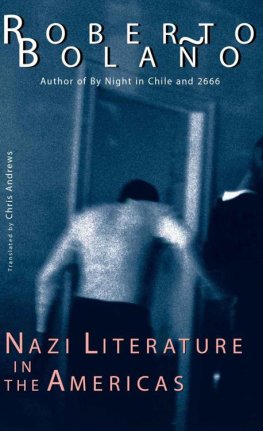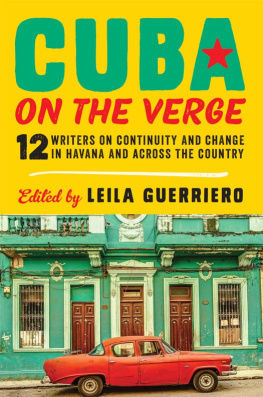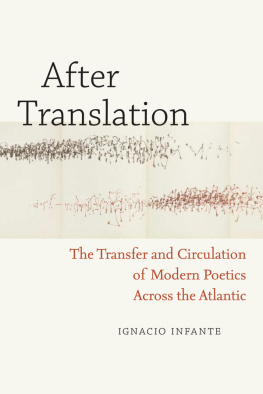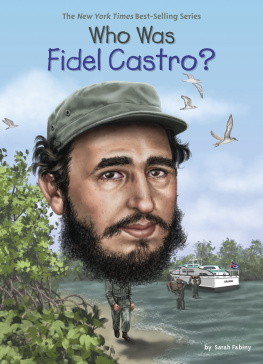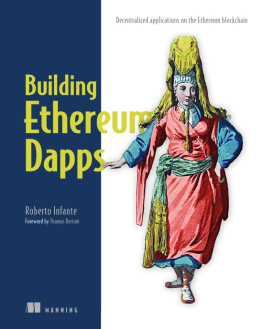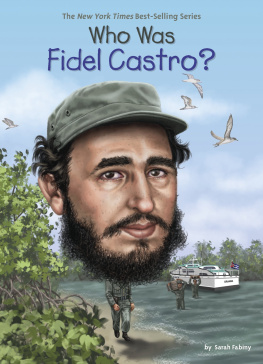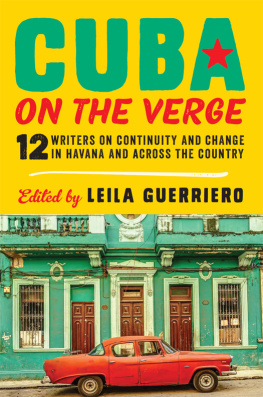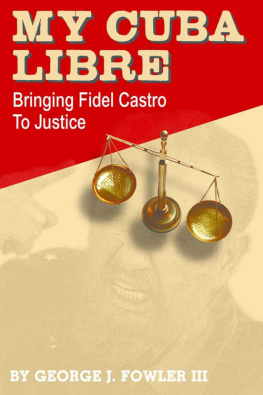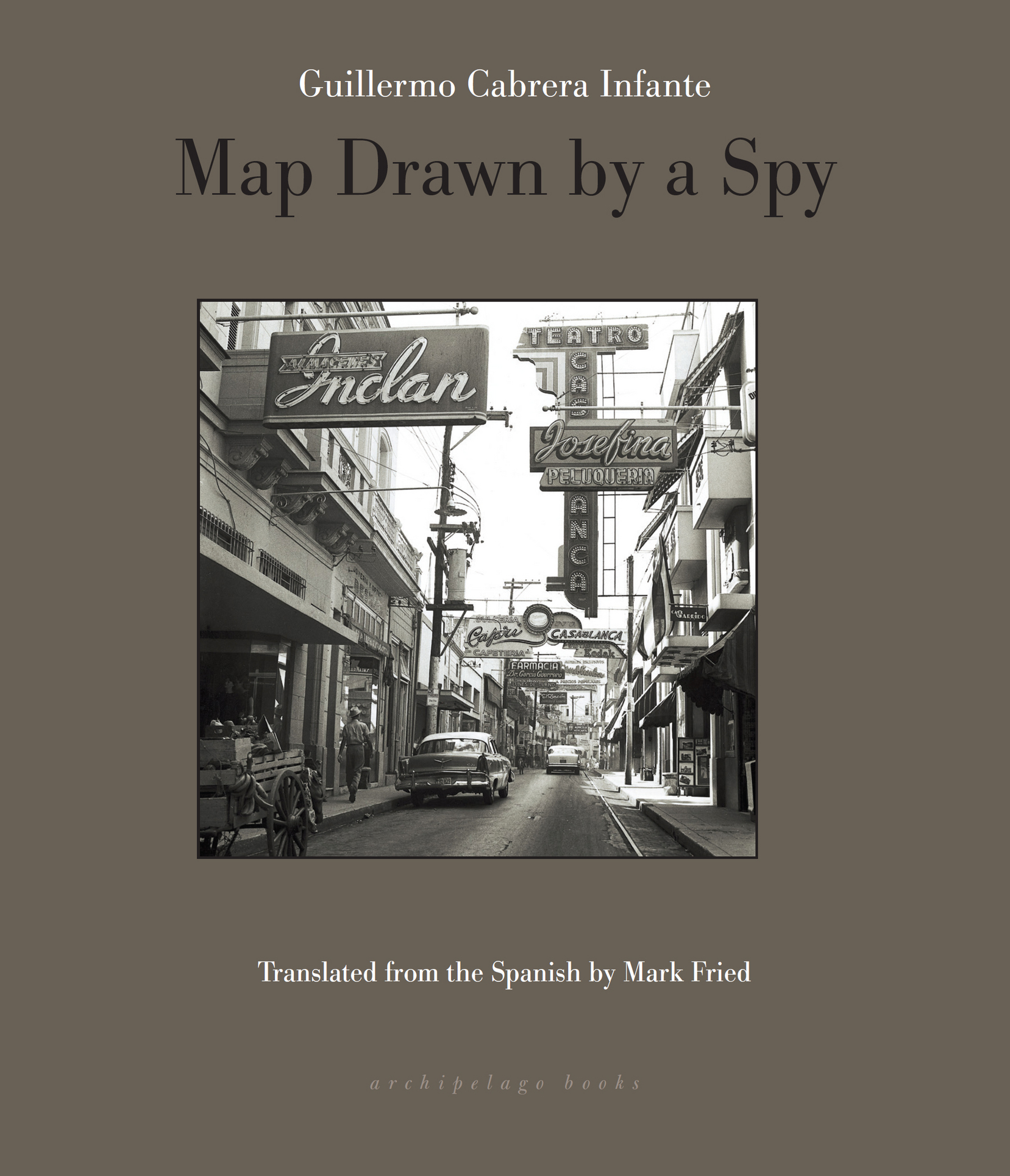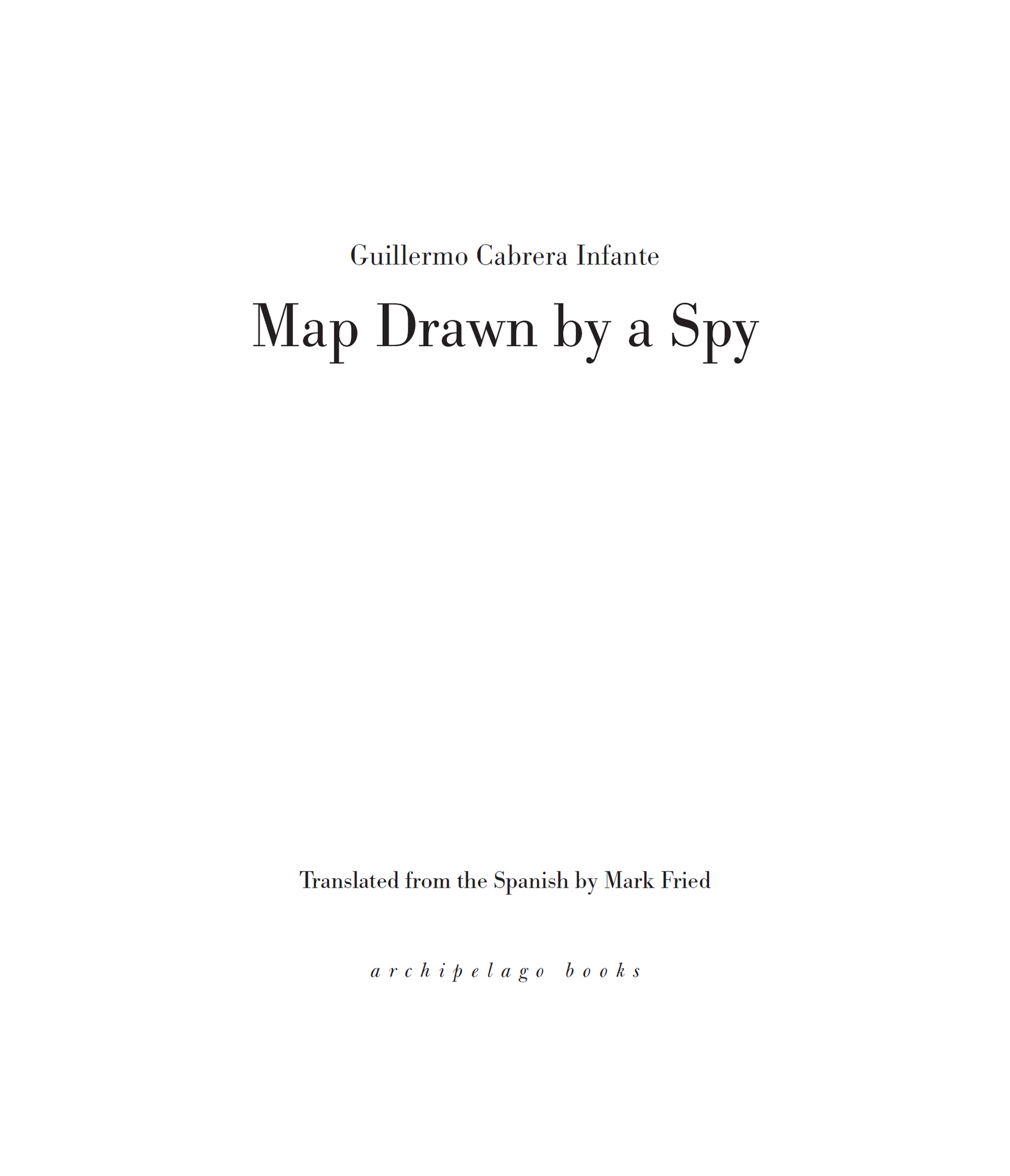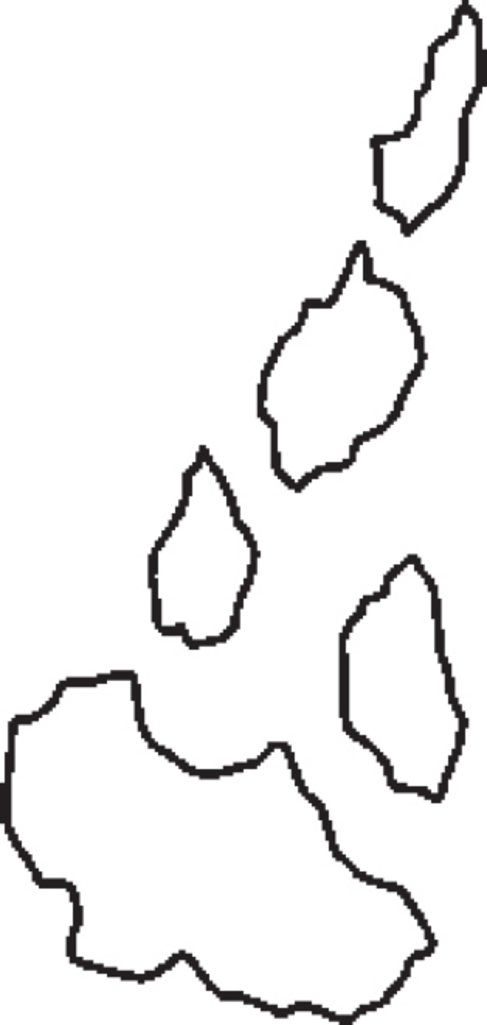Contents
Copyright Guillermo Cabrera Infante, 2017
English translation copyright Mark Fried, 2017
First Archipelago Books edition, 2017
Library of Congress Cataloging-in-Publication Data
Cabrera Infante, G. (Guillermo), 1929-2005. | Fried, Mark, translator.
Map drawn by a spy / by Guillermo Cabrera Infante; translated by Mark Fried.
Mapa dibujado por un espia. English
LCCN 2017025451 | ISBN 9780914671787 (paperback)
LCC PQ7389.C233 M3713 2017 | DDC 863/.64dc23
LC record available at https://lccn.loc.gov/2017025451
Archipelago Books
232 Third Street, #A111
Brooklyn, NY 11215
www.archipelagobooks.org
All rights reserved. No part of this book may be reproduced or transmitted in any form without the prior written permission of the publisher.
Distributed to the trade by Penguin Random House
www.penguinrandomhouse.com
Archipelago Books gratefully acknowledges the generous support from Lannan Foundation, the National Endowment for the Arts, the New York City Department of Cultural Affairs, and the New York State Council on the Arts, a state agency.
Ebook ISBN9780914671794
v4.1
a
You were really not one of them but a spy in their country.
Ernest Hemingway (The Snows of Kilimanjaro)
I have here a map made a few days before the attack on the islands capital. As you can appreciate, the map is rather crude, but it fulfills its purpose very wellYou can see how the map distorts the characteristics of the city and its surroundings. It is believed this map was drawn by an English spy.
Guillermo Cabrera Infante (View of Dawn in the Tropics)
Although an old, consistent exile, the editor of the following pages revisits now and again the city of which he exults to be a native.
Robert Louis Stevenson (The Master of Ballantrae)
The reader will perceive how awkward it would appear to speak of myself in the third person.
Pat F. Garrett (The Authentic Life of Billy the Kid)
You may well ask why I write. And yet my reasons are quite many. For it is not unusual in human beings who have witnessed the sack of a city or the falling to pieces of a people, to desire to set down what they have witnessed for the benefit of unknown heirs or of generations infinitely remote; or, if you please, just to get the sight out of their heads.
Ford Madox Ford (The Good Soldier)
Here again, we must be careful not to exaggerate: many of us loved the bourgeois tranquility, the antiquated charm that came over this battered capital in the moonlight; but even our pleasure was tinged with bitterness: what could be more bitter than walking its streets, around its church, its city hall, and tasting the same melancholic joy as when visiting the Colosseum or the Parthenon under the moon. Everything was in ruins: houses uninhabited, shuttered, hotels and cinemas requisitioned, marked off by white barriers we stumbled upon suddenly, bars and stores closed for the duration of the war, their proprietors deported, killed, or disappeared, pedestals without statues, gardens cut in two by quarrels or disfigured by gun emplacements made of reinforced concrete, and all those big dusty signs on top of the buildings, electric billboards that shone no more.
Jean-Paul Sartre (The Republic of Silence)
Contents
Map Drawn by a Spy
******* ******* USUALLY SAT NEXT TO THE DRIVER out of some shallow democratic sentiment. But that afternoon, on the first of June 1965, Jacqueline Lewy, the secretary, had asked him to drop her near her house and he decided to sit in the back with her. That saved his life.
The Mercedes climbed the steep hill up Rue Roberts-Jones to the rotary at Winston Churchill Avenue, traveled a distance under the shade of plane trees, then turned down a side street and dropped Jacqueline off not far from her home. She thanked him, said goodnight in French, and he remained in the backseat. The car returned to the main road and headed toward the Embassy of Chad.
He might have been thinking ahead to the reception when the car stopped for a moment at a red light, then moved on, and he looked up. A truck was crossing the road diagonally, but the Mercedes kept going. He yelled at the driver to stop, but the man drove on as if he did not see the truck. Then he screamed at him to speed up to get across ahead of it, but the car continued apace. He felt the blow, heard the loud crash and the sound of breaking glass. He was thrown forward against the front seat, but was uninjured. The two vehicles occupied the middle of the intersection, truck wedged into car, the passenger side of the car crumpled in. During the fleeting moment when he saw the truck advancing and knew a crash was inevitable, all he could think about were the times he had sensed this very thing would happen sooner or later. The driver, Jos, was not really a driver, rather the husband of the cook, both of them recommended by the Garca Lorca Communist Club as trustworthy people. From the first day it was obvious that Jos knew nothing about driving, but the embassy needed a chauffeur and perhaps given time he would learn, despite being none too bright. Clearly he had not and now he had crashed on the way to a reception. He got out of the car and, ignoring the stares of onlookers, examined the damage: the right front was a mess and now that the truck was backing up he could see a part of the cars motor had been thrust into the passenger seat and the damage was irreparable. That was when he understood that had he been riding as usual he would be seriously injured if not dead; as it was, neither he nor the driver was hurt. Because he wanted to calm down before arriving at the reception, he refused to look at the driver, and just told him to wait. He crossed the street to a corner caf, asked for the telephone and someone said, At the back. He called the embassy and spoke to his wife, Miriam Gmez. No, he was not injured and now all he needed was Jacquelines telephone number to ask her to get in touch with a garage. Having done that, he left the caf to tell Jos to stay put until the tow truck arrived. Then he flagged down a passing taxi and gave the address of the Chadean Embassy. When he arrived at the reception, he realized his hands were trembling, though not perceptibly.
His first move after greeting the ambassador and his wife, who were standing by the door in their national dress, was to grab a glass of whisky from a tray held by a sleepwalking waiter. Then he went to a corner occupied by several diplomats from Arabic countries whom he often ran in to, avoiding with a wave of the hand the group of representatives from socialist countries, which he eventually would have to join. He downed another whisky and felt better, then made a joke or two in English with the Iraqi ambassador and let time pass. He was still thinking about the accident.


